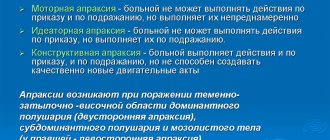Tinnitus is an extremely common symptom. It accompanies a variety of diseases, appearing in combination with other signs of the disease or separately (this is much less common). Tinnitus refers to almost all unpleasant sounds and sensations that occur in the ear: from humming, crackling and whistling to ringing, hissing or changes in sensitivity to sound volume.
In medicine, there are two types of noise: objective and subjective. As the name suggests, the first is a noise that is noticed not only by the patient, but also by the doctor during an examination. This is rare; most often, the occurrence of objective noise is associated with physiological changes in the structures of the inner or middle ear.
At CELT you can get advice from a neurologist.
- Initial consultation – 3,500
- Repeated consultation – 2,300
Make an appointment
Subjective noise is much more common - it is a noise that only the patient hears. In this case, the pathology can be caused by dozens of diseases, and the patient’s task is to consult a doctor in time, and the specialist’s task is to establish the true cause of the discomfort.
Most often the noise is accompanied by the following symptoms:
- Dizziness, less often – unsteady gait.
- Nausea, less often – vomiting.
- Headache.
- Unpleasant or even painful sensations in the ear.
- Discharge from the ear.
- Increased body temperature, weakness.
The presence of any of the listed accompanying symptoms should be reported to the doctor at the first examination - this will facilitate the correct diagnosis.
Sound conduction pathologies
According to statistics, the most common cause of hearing loss accompanying tinnitus is cerumen. This pathology is sometimes accompanied by ear pain and discomfort, aggravated after water procedures. It interferes with the normal conduction of sound. Sometimes the presence of a plug leads to an inflammatory process.
The second most common cause is otitis media. Inflammation can occur in the middle, outer, or inner ear. Otitis media is more common. Fluid accumulates in the ear cavity, formed due to the inflammatory process. As a result, extraneous noise occurs. Sharp pain in the ear, discomfort, and decreased hearing occur.
Treatment
Help before diagnosis
You can completely get rid of tinnitus only after treating the underlying disease that caused the discomfort. Therefore, if extraneous sounds appear for no reason, you should not postpone a visit to the doctor. To reduce discomfort until the cause of the disorder is identified, mild herbal sedatives and soothing herbal teas are recommended. In some cases, self-massage of the ears helps: rubbing movements, pressing with your palms on the ears.
Conservative therapy
Since tinnitus is caused by various causes, treatment regimens are selected strictly individually, taking into account the underlying disease and concomitant pathology. A prerequisite for the effectiveness of therapy is the elimination of provoking factors (refusing loud music on headphones, changing jobs, avoiding noisy parties and visiting nightclubs). Etiotropic therapy includes antibiotics, anti-inflammatory and antihistamines, angioprotectors, other groups of drugs, and their combinations. For the symptomatic treatment of tinnitus, use:
- Sedatives
. Herbal and synthetic drugs reduce the excitability of the brain and the speed of nerve impulses. Medicines also normalize the emotional state. - Antidepressants
. Medicines are effective for constant noise, which is caused by chronic diseases, Meniere's disease. The drugs affect centers in the brain and increase the concentration of serotonin. - Tranquilizers
. Indicated for severe ringing or buzzing in the ears, leading to insomnia and reducing performance. The effectiveness of the drugs is due to their sedative and hypnotic effects.
Experimental treatment
Tinnitus retraining therapy (TRT) is an innovative direction that is a type of cognitive behavioral therapy. The program involves individual sessions using psychotherapeutic methods, during which a person is taught ways to relax and techniques for switching attention. A component of the treatment is individually selected sound therapy. The patient is asked to listen to a pleasant noise (the splashing of waves, the rustling of leaves, the sound of rain). Over time, the brain learns to block these sounds, while the perception of pathological noise decreases.
Surgery
If humming, ringing, or tinnitus are associated with purulent inflammatory diseases, it is necessary to open and drain the tympanic cavity, which significantly speeds up the healing process. If tumors of the auditory analyzer are detected as the main cause of the disorder, they are removed with mandatory cytomorphological examination. Treatment of malignant neoplasms involves a combination of surgery with chemotherapy and radiation therapy. In aneurysms, the affected vessel is clipped.
Pathologies of sound perception
The most common is labyrinthitis, an inflammatory process affecting the structures of the inner ear. Due to the structure and physiology of a person, the inflammatory process often negatively affects the functioning of the vestibular apparatus, which leads to the appearance of additional symptoms such as dizziness and nausea.
Another possible cause is a pathological condition in which too much fluid collects in the inner ear. As a result, the functioning of receptor structures is disrupted. Associated symptoms: hearing loss in one ear, dizziness, which occurs and goes away spontaneously.
Hearing loss caused by damage to nerve pathways or auditory receptors also falls into the category of sound perception pathologies. Accompanied by severe hearing impairment in combination with noise.
Character of the ringing
Questioning a patient who complains about this symptom helps in diagnosing the underlying disease that caused it. To determine the disease, an otorhinolaryngologist asks the patient leading and clarifying questions to determine the nature of the ringing.
- A monotonous noise resembling a whistle, hissing, squeaking or buzzing.
- Multicomponent noise - resembles the ringing of a bell, voice timbre, and various musical elements.
Noise can be of vibrational or non-vibrational nature, which directly affects the nature of the noise.
- Vibration ringing - occurs mechanically due to the anatomical formations of the inner ear and cerebral vessels. This noise may be objective.
- Non-vibrational - always subjective, occurs as a result of improper functioning of the conductive nerve fibers in the central nervous system. May occur with mental disorders.
Other pathologies
This includes diseases not related to the hearing aid. Thus, the cause of tinnitus can be cervical osteochondrosis, a disease that is characterized by damage to the cervical vertebrae and leads to prolonged compression of the arteries that supply blood to the ear.
Atherosclerosis is another disease that, when developed, leads to damage or narrowing of blood vessels. This means that the hearing organs do not receive enough blood.
Diseases associated with an increase or decrease in pressure, despite different mechanisms of development, can manifest themselves with the same symptoms on the part of the hearing organs.
Diagnostics
Diagnosing the symptom of tinnitus is important. Since the symptom may be associated with serious diseases. The intensity of the noise and its location, as well as its duration, are important in diagnosis.
Ringing in the right ear causes and treatment
In this case, the ringing is most likely associated with diseases such as otosclerosis, otitis interna, the presence of a foreign body in the outer ear on the right side, or damage to the cerebral vessels. Ringing in the right ear can be constant or periodic; the periodic appearance of a symptom speaks in favor of the vascular component of the disease, for example, in atherosclerosis and hypertension, but constant noise speaks in favor of otosclerosis and disorders of the nervous system. Why is there a ringing in my left ear? The reasons will be the same as with the right one. To clarify the diagnosis, the specialist will necessarily collect an anamnesis, examine using otoscopy, and determine bone conductivity using a special medical tuning fork. To clarify the diagnosis, special additional research methods are sometimes required, such as:
- Magnetic resonance and computed tomography - allows you to determine the degree of damage to the anatomical structures of the inner and middle ear;
- Tone threshold audiometry - in this study, an audiogram is compiled, which can be used to judge the degree of perception by the central nervous system of various sound stimuli;
- Angiography of cerebral vessels - allows you to determine the degree of damage to the arteries.
Often, to establish an accurate clinical diagnosis, it is sufficient to determine the accompanying set of symptoms that help in differential diagnosis.
Increased body temperature
If the noise appears along with an increase in body temperature, an infectious process can be suspected.
In most cases, the body is able to cope with viruses or bacteria on its own. A doctor's help is required in the following cases:
- General weakness has appeared, there is intoxication.
- Symptoms are accompanied by loss of appetite and nausea.
- There is insomnia or drowsiness.
- A headache occurs.
- There are visual impairments.
A sharp increase in body temperature is also considered dangerous - if within 2-3 hours it rises above 38.5 degrees.
You should also consult a doctor if the temperature is low, but lasts longer than 3 days in a row.
Abdominal pain
Abdominal pain that is accompanied by tinnitus may indicate serious poisoning or inflammation of the appendix. If such symptoms appear, you should consult a doctor immediately. It is especially dangerous if the pain does not go away within an hour and is not relieved by painkillers. Sometimes, such symptoms do not require help - for example, on the first day of the menstrual cycle or in the presence of chronic problems with the gastrointestinal tract. In other cases, calling a doctor is required. In this case, you need to inform the specialist about taking analgesics - since the absence or masking of pain syndrome may interfere with the diagnosis.
Practical advice
If you experience ringing in the ears, and even more so it bothers you and interferes with your activities, you should not delay in contacting a specialist for professional help, otherwise you may miss the progression of a serious disease that may be accompanied by ringing in the ears. Only a specialist - an otorhinolaryngologist will be able to accurately determine the cause of tinnitus and plan subsequent treatment. By the way. Following the advice of your doctor is a prerequisite for effective relief from an unpleasant symptom. Take care of your body and health, be happy!
Cerebrovascular accident
The most serious thing that noise in the ear can indicate is a violation of blood circulation in the brain. If typical symptoms appear, it is better to consult a doctor within a few days, especially if there are no prerequisites for the occurrence of the disease. Very often, typical symptoms appear in those who abuse alcohol or smoke a lot, use aspirin for a long time, do not monitor the amount of salt in their food, or consume excessive amounts of coffee and energy drinks. The main signs of cerebrovascular accident are dizziness, severe loss of coordination of movements and tinnitus. If symptoms do not go away within half an hour or progress, you need to call an ambulance.
Whistling in the ears in neurological diseases
Neurological pathologies cause tinnitus along with ENT diseases. Let's consider the most common causes of tinnitus, which fall under the competence of neurologists.
Ringing in the ears due to arterial hypertension and hypertensive crisis
With a significant increase in blood pressure (more than 140/90 mm Hg), blood flow to the inner ear becomes uneven. As a result, the nerve endings inside it are excited, and tinnitus occurs. With arterial hypertension, this most often occurs during a hypertensive crisis - an attack of a sharp increase in pressure.
Other manifestations of hypertensive crisis:
- headache;
- dizziness;
- dyspnea;
- pain in the heart area;
- nausea and vomiting;
- convulsions;
- disturbance of consciousness.
During a hypertensive crisis, the patient requires emergency assistance. It is necessary to reduce blood pressure as quickly as possible, otherwise its jump can lead to myocardial infarction, stroke and other serious complications.
If arterial hypertension is accompanied by a chronic disorder of cerebral circulation, then the patient is almost constantly bothered by tinnitus.
Ringing in the ears due to cerebrovascular accident
The most common cause of impaired blood flow in the vessels of the brain is atherosclerosis. This is a disease in which cholesterol plaques form on the walls of the arteries, partially or completely blocking their lumen.
Other causes of cerebrovascular accident:
- arterial hypertension (the main cause of which is also often atherosclerosis);
- increased blood viscosity and blood clot formation;
- diabetes mellitus (with this disease, the vessels of the brain, eyes, and kidneys are primarily affected);
- consequences of traumatic brain injury;
- intracranial tumors, hemorrhages.
The main symptoms of chronic cerebrovascular accident: headaches, dizziness, tinnitus, flashing “spots” before the eyes, increased fatigue, drowsiness, impaired memory and attention. Constant oxygen starvation does not leave its mark on the brain. Nerve cells gradually die, which over time can lead to the development of dementia.
The effect of increased intracranial pressure on tinnitus
Tinnitus as a result of increased intracranial pressure occurs with hydrocephalus, intracranial tumors and hemorrhages, after traumatic brain injuries and infections (meningitis, meningoencephalitis).
Headache and tinnitus - characteristic manifestations of increased intracranial pressure - usually occur in the morning, after a person has been in a horizontal position for a long time. During the day the symptoms disappear. The vertical position of the body helps the excess amount of intracranial fluid flow away and its pressure decreases.
Diseases of the cervical spine
The vertebral arteries, vessels that play an important role in the blood supply to the brain, run along the cervical spine on the right and left. They are not just located on the sides of the spine, but pass through holes in the lateral processes of the cervical vertebrae.
Often, pathological changes in the spine - inflammation, displacement of the intervertebral disc, bone growths that form on the vertebrae - lead to impaired blood flow in the vertebral arteries and neck pain. Blood flow to the head decreases. The brain and other organs experience oxygen starvation.
This condition is called vertebral artery syndrome. Its main manifestations:
- constant burning pain in the back of the head, temples, which intensifies after sleeping in an uncomfortable position, traveling by transport;
- hearing loss and tinnitus;
- blurred vision, “fog before the eyes”;
- dizziness, loss of balance when turning the head suddenly;
- loss of consciousness;
- sleep disturbances, the patient does not feel sleepy and rested, in the afternoon there is severe fatigue and drowsiness.
Noise in the ears is a signal of a tumor
Acoustic neuroma is a benign tumor that leads to tinnitus and other symptoms: decreased hearing on one side, pain and impaired movements of the facial muscles of half the face, and speech impairment. For acoustic neuroma, the doctor prescribes surgical treatment or radiation therapy.
Many intracranial tumors lead to impaired cerebral circulation and increased intracranial pressure. Therefore, tinnitus can also be one of the symptoms of such pathologies.
Multiple sclerosis
This is a chronic disease that most often occurs between the ages of 15 and 40 years. All nerve fibers in the human body are covered with a special myelin sheath. It is necessary for the normal transmission of nerve impulses. In multiple sclerosis, the myelin sheath is destroyed, resulting in slower neuromuscular transmission.
The symptoms of multiple sclerosis are varied. In some people, the disease manifests itself in the form of numbness in a certain part of the body, for example, a limb, while in others severe paralysis develops, including breathing problems.
One possible symptom of multiple sclerosis is tinnitus.
Depression and neuroses
Under certain conditions of the nervous system, the hearing organ becomes hypersensitive to sounds and becomes irritated. This is often caused by depression, neuroses (neurasthenia, hysterical neurosis), and nervous breakdowns. The patient comes to see a doctor and complains of constant tinnitus, but during examination and examination no objective abnormalities are revealed.
For psychogenic tinnitus, psychotherapy and appropriate medications are prescribed.
Taking medications for tinnitus
Some medications are ototoxic—they can harm the nerve endings in the inner ear and cause tinnitus. This side effect is most pronounced with the following drugs:
- antimalarials (quinine) and some antibiotics (for example, streptomycin);
- anti-inflammatory drugs (including aspirin);
- antipsychotics (haloperidol);
- antidepressants;
- digitalis preparations;
- furosemide
If you begin to experience tinnitus while taking one of these medications, you should stop taking it and consult a doctor immediately.
Only a doctor, based on the results of the examination and examinations, will determine what disease led to the occurrence of tinnitus. It is necessary to begin proper treatment of this symptom for any pathology as early as possible - this will help eliminate its root cause and prevent serious complications.
The Yusupov Hospital employs experienced neurologists, therapists, cardiologists, and has all the necessary equipment. This allows us to provide patients with modern, high-quality medical care.
Our doctors
Belikov Alexander Valerievich
Neurologist, Candidate of Medical Sciences
21 years of experience
Make an appointment
Novikova Larisa Vaganovna
Neuropathologist, Candidate of Medical Sciences, doctor of the highest category
Experience 39 years
Make an appointment
Pankov Alexander Rostislavovich
Neurologist
40 years of experience
Make an appointment











